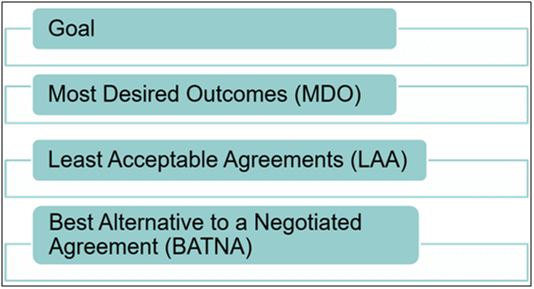As a professional purchaser, negotiation skills will place one at an upper hand. Besides interacting closely with the suppliers for various deals, a purchaser has to negotiate effectively with potential suppliers to get the required goods at favourable pricing, within a given working budget.
Negotiation is a communication skill whereby the process involves two parties to compromise and come to an agreement, while avoiding possible argument and dispute. Therefore, a good negotiation is vital to the success of a business, especially in construction industries. On the other hand, purchasers with poor negotiation skills usually lack in confidence and are weak in getting better quotations which can potentially bring harm to the company interest.

Table of Contents
Preparation for Negotiation
To negotiate successfully, well-planned preparation is very important. First, the purchaser needs a clear understanding of the suppliers’ background and will further gain advantage by having the knowledge for bargain power. For instance, the purchaser should do research for common materials or goods and services in the market. While requesting for quotations, the purchaser is able to compare offered prices and ensures that the vendor do not offer unreasonable price. With a strong grasp of the suppliers’ background, including financial capabilities, project references,stock availability and professional certificates such as ISO certificates, the purchaser can be more prepared and make the necessary planning to enter the stage of negotiation.
The diagram below shows the procedural flow of a purchaser developing negotiating envelopes. From setting a goal, achieving the most desired outcomes, and dispatch over the least acceptance agreement, and finally comes to the terms of looking at the best alternative and eventually accepts a final negotiated agreement.

Problem Solving
When a problem arises during negotiation, the purchaser has to find ways to overcome them successfully. With a clear-mindedhead, strong understanding of the product or material, the purchaser learns and applies the key techniques of negotiation. Therefore, problem solving in negotiation can be one of the negotiation techniques.
Interest Intersection Method
As one of the common negotiation techniques being used in the construction sector, especially for negotiating a procurement contract, Interest Intersection Method (IIM) focus and protect both supplier’s and purchaser’s company interests at the same time. Most of the suppliers may not know all possible interests until the purchaser suggests in the request. The purchaser must understand and identify the involved interests, concerns and needs for all parties. Then, through clarification and sharing, both partiers acknowledge their needs before moving forward to closing the deal. Hence, IIM is one negotiating technique for both purchaser and supplier to reach common goals and make a successful deal.
Create Win-Win Situations
To create a win-win situation, both parties achieve a result which everyone is satisfied and happy. A real win-win situation arises when the agreement has mutual satisfaction. While it is difficult to ensure everyone being satisfied during the negotiation, the purchaser has to overcome the challenges faced. As such, creating win-win situation are highly valued for long term partnership.

Communication Skills – Active Listening
To better improve the negotiation skills, the communication skill is a major strength a professional purchaser should learn. Active listening helps the negotiator to achieve successful negotiations. Active listening is not merely responding or wording in agreement but also gathers information to understand suppliers’ background for more effective communication. When the other party sees that the receiver pays attention and plays an active role in communication, the negotiator presents to be sincere.
The full content is only visible to SIPMM members
Already a member? Please Login to continue reading.
References
Chew Jin Swee, DPSM. (2018). “Essential Strategies for a Successful Procurement Negotiation”. Retrieved from SIPMM: https://publication.sipmm.edu.sg/essential-strategies-successful-procurement-negotiation/, accessed 21/06/2020.
Joanne Chia Jia Rong, DPSM. (2020). “Key Techniques for Successful Procurement Negotiation”. Retrieved from SIPMM: https://publication.sipmm.edu.sg/key-techniques-successful-procurement-negotiation/, accessed 21/06/2020.
Marc, Wins. (2017). “7 Key skills for successful negotiation”. Retrieved from http://www.procurement-academy.com/7-key-skills-successful-negotiation/, accessed 21/06/2020.
Martina Marof, DPMM. (2018). “5 Critical Strategies for a Successful Procurement or Purchasing Negotiation”. Retrieved from SIPMM: https://publication.sipmm.edu.sg/5-critical-strategies-successful-procurement-purchasing-negotiation/, 21/06/2020.
Pon Staff (2020). “Negotiation Skills: Building Trust in Negotiations Strategies You Need to Know to Build Trust in Negotiations”. Retrieved from http://www.pon.harvard.edu/daily/negotiation-skills-daily/trust-in-negotiations, 21/06/2020.

